3010 people reached on Lassi with Lavina FB page
Anmol S. Budhiraja, Arlita Riley Powell and 3 others like it on Lassi with Lavina
760 views on LinkedIn
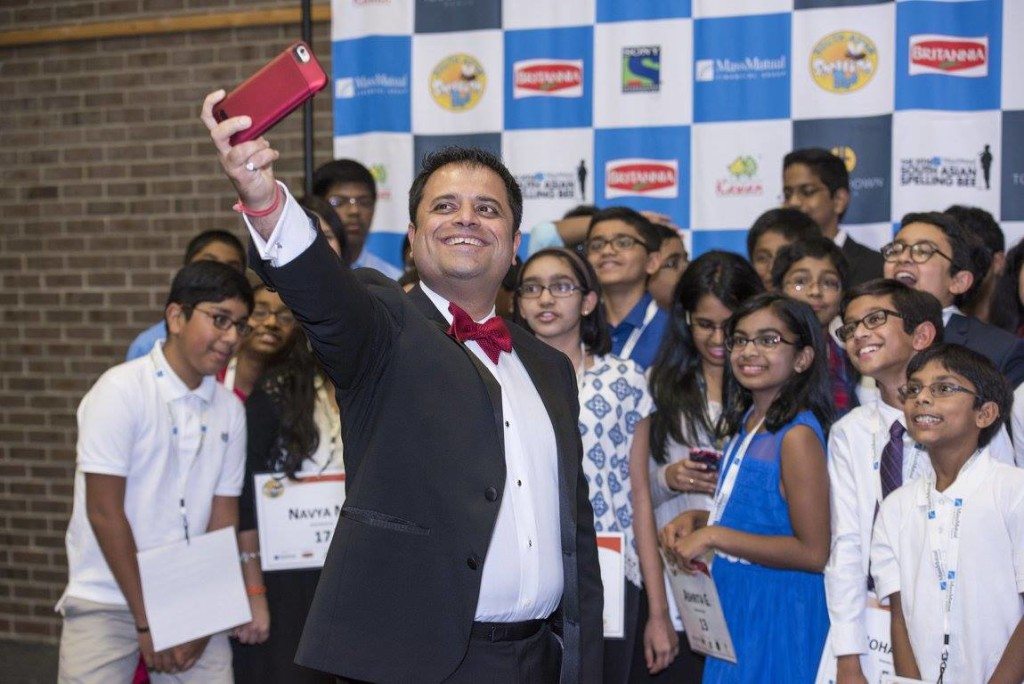
Rahul Walia: The Interpreter of Communities
Celebrating the Immigrant’s Memories…
[dropcap] H[/dropcap]e breaks into people’s homes. And if that’s not outrageous enough, he even opens their refrigerators and checks out the contents! He makes middle-aged Indian men remember their youth – and young Indian kids conquer the world.
So who is Rahul Walia and what does he really do?
To call him a marketing man would be too simple an answer – and not as spicy. You could instead call him the People Connector or the Interpreter of Communities.
Walia, 42, who himself first came to America as a new immigrant in 1997, has actually managed to link the large desi community with mainstream American brands through the medium of the emerging Indian and South Asian broadcast media. As CEO of Touchdown Media, he connected the dots between American corporations and the large lucrative Indian-American consumer market, using South Asian television channels as the entre into desi lives.
His winning mantra?
The four desi passions – Education, cricket, Bollywood and Indian food!
In an increasingly media-saturated world where we are constantly bombarded with information, Walia has created some innovative television programming which gets welcomed by South Asians right into their living rooms, bedrooms – and even their kitchens!
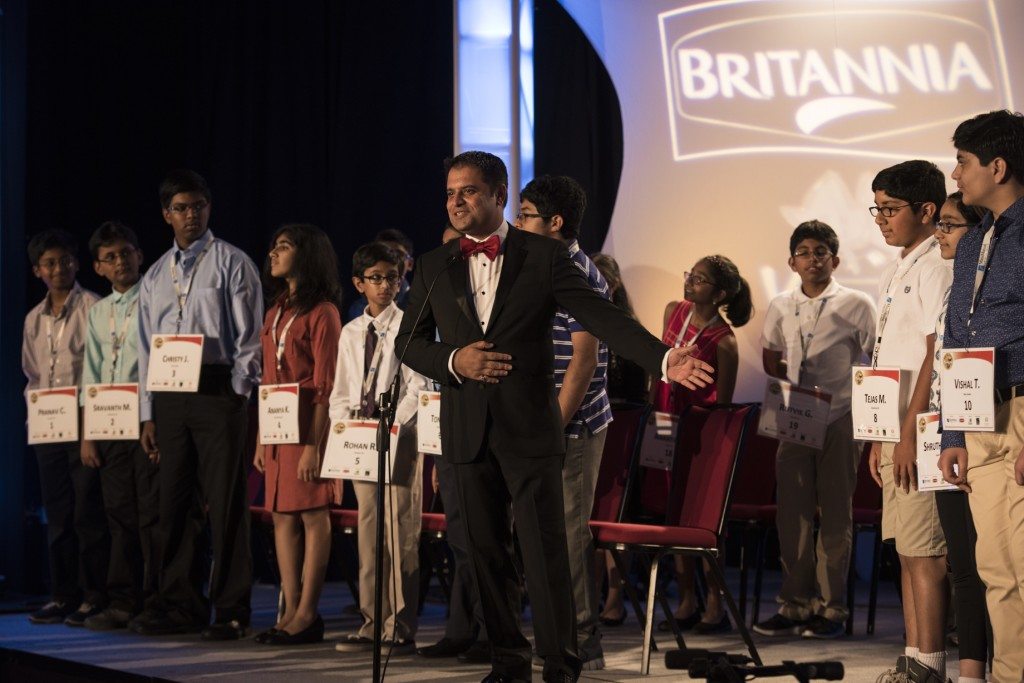
[dropcap]B[/dropcap]y sharing the four passion points of South Asians, he has generated a dialogue. As he admits, reaching the demographic is not difficult – it is engaging this core audience and winning their attention which is crucial. “With a company like ours which is in the multicultural space, we have to bridge the gap between the brands and this demographic, and the onus is on us to provide platforms that engage that reach. You have to focus on the emotional links of people, of what matters to this community.”
Walia discovered what makes these audiences tick by his own experiences growing up in India.
“My dad was in the Indian Air Force so we grew up all over India,” he recalls. “I did my final years of school at the Air Force Golden Jubilee Institute and college at Motilal Nehru College in Delhi University. We students all had the clichéd passions – Bollywood, cricket and forced studying! Cinema was a religion, and cricket was played by every little boy in the streets. Parents expected you to study hard and be better than everyone else!”
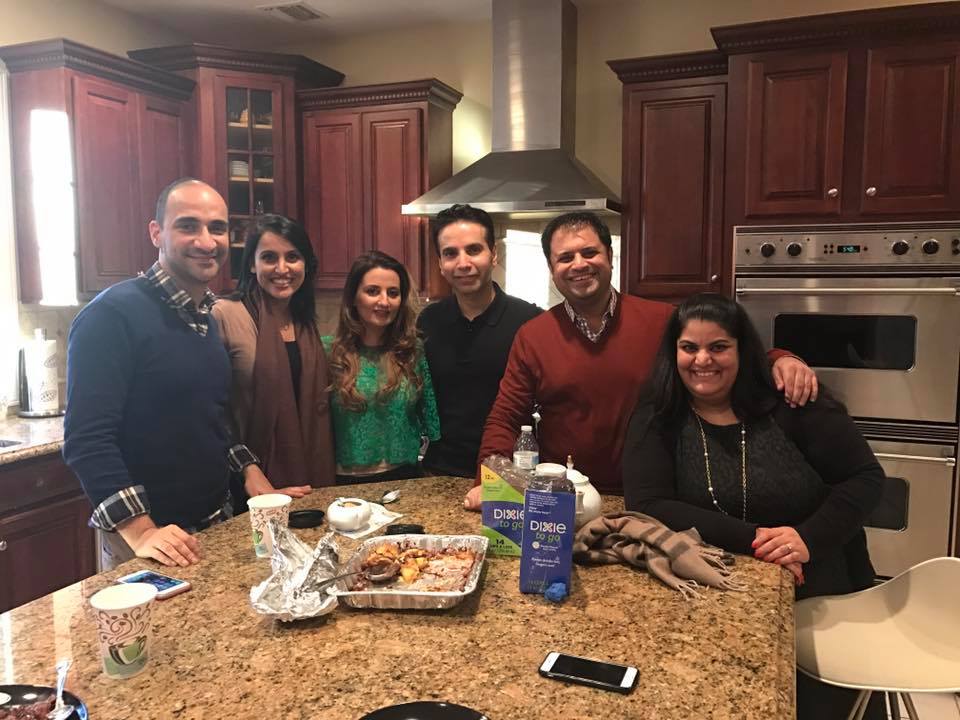
[dropcap]H[/dropcap]e recalls that when he came to the US in the late 90’s, the initial families he interacted with were not that different from the ones he grew up with in India. He says, “Although the community was larger than it was 15 years ago, it was nothing like today’s huge Indian population. At that point the burgeoning Indian community was more focused in assimilating themselves than trying to create an identity for themselves. Our numbers weren’t large. In the 70’s and 80’s Indians assimilated very quickly into American life as doctors, academics, engineers and as professionals in American corporations.”
Walia found that in spite of becoming American, Indian immigrants carried their core values with them – a keen sense of family and belonging and education. He says, “The community has really evolved. A lot of credit has to be given to the kids who grew up here – we call them the American Born Confused Desis but they really are the American Born Classy Desis for they have created an identity for themselves.”
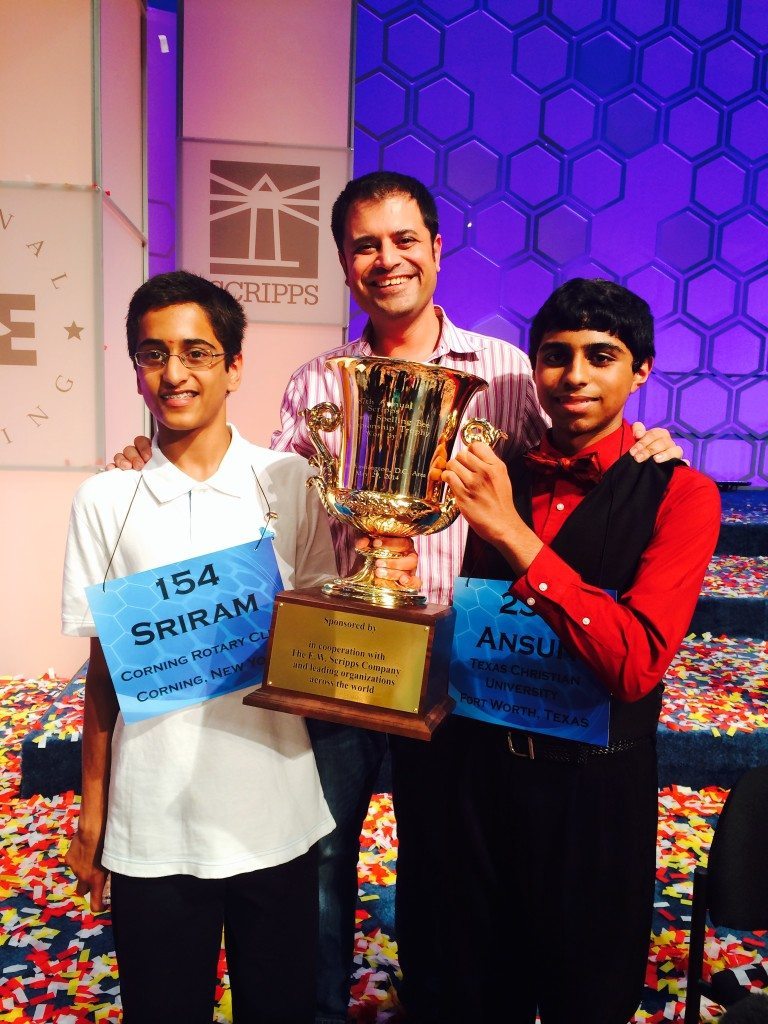
[dropcap] T[/dropcap]hese young Indians are in the public life and have assimilated into the American culture but uniquely identify themselves with their Indian identity whether it is their names or their culture. The South Asian Spelling Bee (SASB) which Walia created in 2008, is a live event in several cities which is telecast by Sony. From being a pipeline for the desi community, it has become the gold standard for children participating in the Scripps National Spelling Bee – even some mainstream children ask to be a part of it!
Dr. Shalini Shankar, Professor of Anthropology and Asian American Studies at Northwestern University, is the author of the upcoming book Beeline: What Spelling Bees Reveal about Generation Z’s New Path to Success (Basic Books, 2018) which is based heavily on research conducted at the South Asian Spelling Bee as well as the National Spelling Bee. She says, “There is significant overlap between these two populations of competitors, and numerous spellers and families attest to the important opportunity that the SASB has provided to help them improve their spelling skills and readiness for competition. Moreover, it has solidified a sense of community among spellers and their families.”
She adds, “Whereas popular opinion suggests that interest in spelling bees is high throughout the South Asian population, the reality is that only a very small portion of this community competes at an elite level. The spaces that the SASB, as well as other bees such as the North South Foundation Bee, have created for families helps them to meet one another and share information and strategies, enriches the community.”
[dropcap]S[/dropcap]ASB, which was launched by Walia in 8 cities with large Indian demographics, was a hit from the start because parents realized what an asset it was for their children. “The focus is on learning and providing platforms on how they can learn,” explains Walia. “Parents figure out subconsciously that the Spelling Bee contributes to the overall development of their child. It’s not about rote learning – that’s the biggest myth about spelling bees. It is more of a brain sport which involves analytic detective work and also builds the social skills and confidence of the contestants.”
“All these children are uniquely Indian in their approach. One of the contestants, born and brought up in the USA, wore a tikka on his forehead, and another touched her parents’ feet when she won the Spelling Bee,” recalls Walia. “These are cultural mores which were embedded in the kids – and they have been able to do extremely well in assimilating and yet carving out an identity as Indian-Americans or South Asians-Americans.”
The parents regard the Bee, which is the longest running initiative, as so valuable to their children’s development that they now schedule their vacations around it, making sure they do not miss it. Roopa Hathwar is one of the parents whose children have participated in the spelling bee since its inception in 2008. It has become a way of life for them, and practice has made perfect. Her son Sriram won the event in 2013 and Jairam was a runner up in 2015. She says, “The organizers are like family!”
Jaideep Jankiram is the CEO of Sony Entertainment Television, which has hosted the South Asian Spelling Bee for over a decade. He says, “It showcases the amazing talent of children within our community while generating great local television programming that gels with SET’s ethos of high quality family entertainment.”
[dropcap]F[/dropcap]amily programming is the mantra that Walia goes by and another show that he has developed to draw in target audiences is Kawan Kitchen Mate, and the idea once again developed from his own childhood. Since both his parents were working, Walia and his siblings were latchkey kids who would come home and open the fridge to see what they’d have for lunch. “That passion started when I was just 10 or 11 years old!” recalls Walia.
“When you’re growing up in India, you love Indian food but you always want to make something cool out of it which is western or fusion. We’d look at leftovers and see what we could come up with. I was lazy and didn’t want to toast my bread, so I’d cut it off into pieces and add them into the skillet when I flipped the omelets so the bread automatically got toasted! I would also always dress up leftover white rice because I hated it with a passion!”
These shortcuts became the inspiration for the Kawan Kitchen Mate Show on Star TV, an offbeat cooking show created by Walia where the host Kunal Lamba goes into Indian homes and snoops in their fridges to check out their leftovers. From the boring and the blah, he creates quick and innovative new dishes which the whole family enjoys.
This peep into other people’s lives, homes and kitchens has become popular with Indian-Americans who love to watch a family show together. It’s always a delight to see day-old leftovers get transformed into kebabs, tikkis and biryani – and at the same time see how your fellow Indians are living in America and how their children are doing.
While creating these shows is Rahul Walia’s profession, it does have an added bonus – it’s turned him into a catalyst for bringing the community together. He says, “The Spelling Bee started as a marketing initiative but it’s become a passion project because we know what it means to the hundreds of families that come for it. Parents swear by our project because we’ve kept it clean and put a lot of work into it.”
Indians are passionate about their desi food so this show has become very much a part of their lives, giving them insights into other families’ lifestyles and homes, and celebrating the cuisine of different parts of India with quick transformations of leftovers from different regions. As one second-generation Indian-American told Walia, the show has brought his extended family together. “On a Sunday – we all get together and watch the Kawan Kitchen Mate Show and then sit down to eat together!”
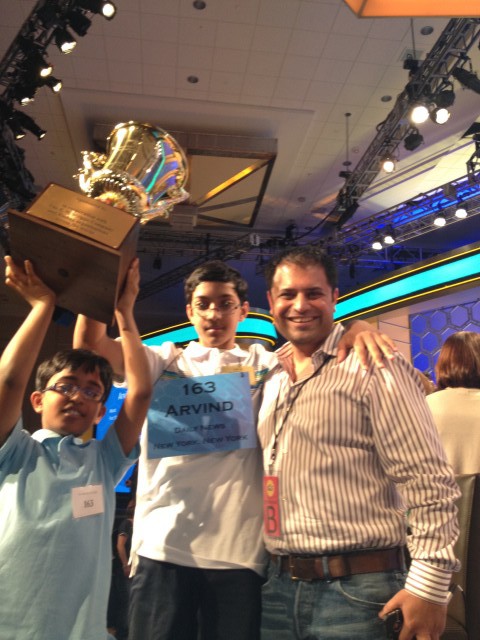
[dropcap]W[/dropcap]hich brings us to the third passion of all South-Asians – cricket! Anyone who grew up in India will remember how everything shuts down when a big cricket match is on with everyone tuned to the radio and TV. This cricket fever which affects desis all over the sub-continent and Diaspora has a specific demographic in America – the new immigrant who has been here a few decades.
Those who grew up in India, Pakistan or Bangladesh have an abiding love for the game so Walia’s show Cricket Bee provides a platform for cricket buffs to show off their knowledge about cricket trivia and win cash prizes. TV Asia returns as the broadcast sponsor and will showcase the initiative in a multi part series on the channel. The Cricket Bee started in New York, New Jersey, the Bay area and Toronto last year with 1000 participants and is now expanding to Dallas and Chicago. The goal is to popularize this hugely popular game in America and win it new fans.
Several local cricket organizations in the US have come on board to promote the Money Gram Cricket Bee initiative, including the Bay Area Cricket Association, The Northern California Cricket Association, The Edison Cricket Club, The North Texas Cricket Association and the Bolingbrook Premiere League. Says Atul Huckoo, President of the Edison Cricket Team, “It will motivate all generations of cricket fans to take part in cricket in an interactive way.”
[dropcap]H[/dropcap]aving been three times lucky with his shows, Walia and his media company are now going after the big prize – Bollywood! After all, for the Indian community cinema, dance and music has been an addiction since childhood. While Bollywood films and dance shows are a staple in the programming from India, few US based networks have attempted local shows which touch the lives of desis in the Diaspora. In a new program for the entire family, Walia plans to bring the drama, emotions and color of the big screen into an interactive reality show. “We are in development to bring Bollywood and the community together,” he says. “The idea is to be a bridge – everyone enjoys Bollywood regardless of age!”
Dr. Shalini Shankar believes that these efforts have increased the visibility and profile of South Asians in the US by bringing numerous high profile brands to the South Asian American market in culturally appropriate ways.
At a time when a whopping 98 percent of the television programming on the Indian channels in the US still comprises of re-runs from India, Rahul Walia is one of the pioneering story-tellers who documents the daily lives of South Asian immigrants and their children in America.

1 Comment
Gurpreet Kaur via LinkedIn
Very interesting!